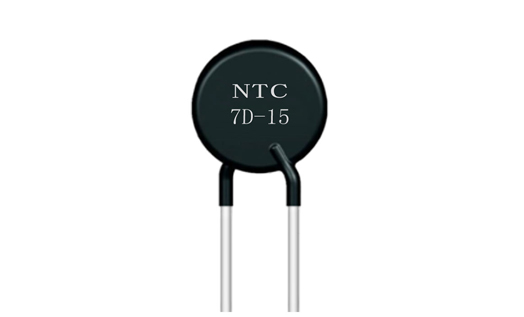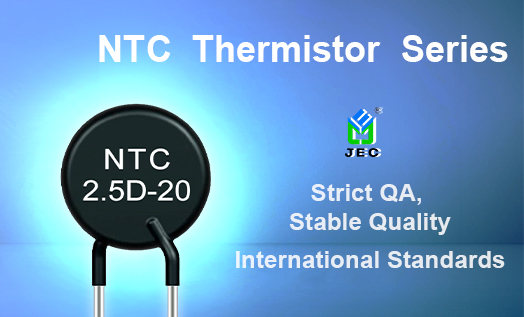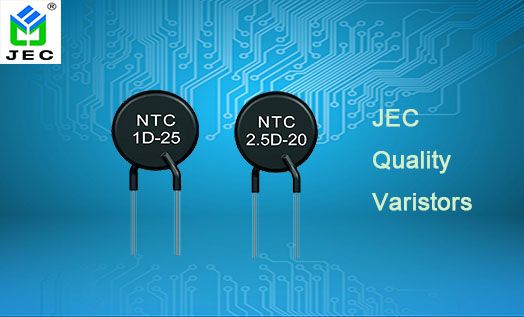Jan. 31, 2021
What Is a Thermistor?
The word thermistor comes from "thermal" and "resistor". A thermistor is a resistance whose resistance depends on temperature. This is a resistance thermometer. They are made of metal oxides molded into beads, plates, or cylinders and then sealed with epoxy resin or glass.
Thermistors do not work well at extreme temperatures, but they are very good at measuring the temperature at a particular point. They are very accurate when they are used over a limited temperature range (i.e., within 50°C of the target temperature); The range depends on the base resistance.
Thermistors are easy to use, relatively cheap, and durable. They are commonly used in digital thermometers, in vehicles for measuring oil and coolant temperatures, and in household appliances such as ovens and refrigerators, and are preferred for applications that require heating or cooling protection circuitry to ensure safe operation.
Thermistors are built into more complex applications, such as laser stability detectors, optical modules, and charge-coupled devices. For example, a 10 k Ω thermistor is built-in standard resistance in laser packaging.
Thermistors are a type of semiconductor, which means they have a higher resistance than conductive materials, but a lower resistance than insulating materials. The relationship between the temperature of a thermistor and its resistance depends to a great extent on the materials of which it is made. Manufacturers usually determine this attribute with great precision because it is the main characteristic of interest to thermistor buyers.
Thermistors are composed of metal oxides, adhesives, and stabilizers that are pressed into wafers then cut to chip size and retained in the form of disks or other shapes. The precise proportions of composites determine their resistance/temperature "curves". Manufacturers usually control this ratio with great precision because it determines the way the thermistor works.
The thermistor is a very accurate and cost-effective temperature measurement sensor. There are two types, NTC (negative temperature coefficient) and PTC (positive temperature coefficient), which are commonly used to measure temperature.
Thermistors come in two types: those with a negative temperature coefficient (NTC thermistors) and those with a positive temperature coefficient (PTC thermistors). The resistance of the NTC thermistor decreases with the increase of temperature, while that of the PTC thermistor increases with the increase of temperature. Temperature measurements are usually made using only NTC thermistors.

Thermistors consist of materials with known resistance. As the temperature rises, the resistance of the NTC thermistor increases in a non-linear manner, following a specific "curve". The shape of the resistance relative to temperature is determined by the properties of the materials that make up the thermistor.
Thermistors have a variety of basic resistance and resistance vs temperature curve. Low-temperature applications (55 - to 70 ° C) often use low resistance of the thermistor Ω) 2252 to 10000. High-temperature applications typically use high resistance of thermistor (more than 10000 Ω). Some materials have better stability than others. Resistance is usually specified at 25°C (77°F). The thermistor is accurate to approximately ±0.2°C over its specified temperature range. They are usually durable, long-lasting, and inexpensive.
Thermistors are usually chosen for applications requiring robustness, reliability, and stability. They are ideal for use in extreme conditions or in the presence of electronic noise. They come in a variety of shapes: the ideal shape for a particular application depends on whether the thermistor is surface-mounted or embedded in the system, and on the type of material being tested.
Thermistors with epoxy coatings can be used at lower temperatures (typically -50 to 150°C (-58 to 316°F)). Thermistors can also be used for glass coatings to be used at higher temperatures [typically -50 to 300°C (-58 to 572°F)]. These coatings protect thermistors and their connectors from moisture, corrosion, and mechanical stress.

Jan. 31, 2021


Industry Chain of Film Capacitors
Jan. 31, 2021
+86 181 2299 5593
+86 18122995593
+86 769 8831 3605
Beside Luchong Bridge, Hou Road, Caibai Village, Daojiao Town, Dongguan, Guangdong, China
Navigation